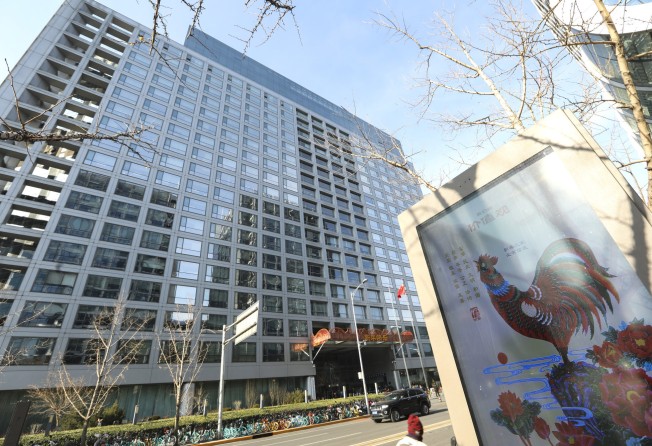
Chinese official blames US politics for lack of auditing agreement for US-listed companies
- A Chinese securities regulator blamed a shift in Washington’s political atmosphere for derailing progress made towards agreeable auditing standards
- US-listed Chinese companies face being ejected from the NYSE or Nasdaq if they don’t comply, which is not currently allowed in China

A top Chinese securities regulator in charge of talking with the US about the auditing of Chinese businesses listed in US markets called on US President Joe Biden’s administration to work with Beijing, blaming the lack of an agreement on an increasingly unfavourable political atmosphere in Washington.
The US Securities and Exchange Commission started implementing in March a law passed at the end of 2020, as former president Donald Trump was on his way out, that allows the agency to review accounting documents of Chinese businesses publicly listed on US exchanges. Companies that do not comply – a possible result of Chinese regulators not yet granting access to the US Public Company Accounting Oversight Board (PCAOB) to audit papers – could be ejected from the New York Stock Exchange or Nasdaq, putting investors at risk if they have money in any of more than 200 Chinese companies listed there.
Fang Xinghai, vice-chairman of the China Securities Regulatory Commission (CSRC), said during a panel discussion at the 2021 Boao Forum for Asia on Monday that the regulator had made progress with the PCAOB over the past four to five years towards building a mutually acceptable mechanism for reconciling local auditing rules with global standards. That was upended when the “political environment in the US changed drastically”, according to Fang.
“As for specific ways for PCAOB to check Chinese accounting firms, we believe we have provided workable proposals that can meet PCAOB demands and China’s national security requirements,” Fang said. “We had sent over the latest version on August 4 last year about a joint review with the PCAOB, but unfortunately, the atmosphere in the US since the US presidential election has not been favourable for China-US cooperation. And we haven’t received a reply from the PCAOB over whether our proposal is suitable or not. We have been sending an email on every month since last August, but they just didn’t reply to us.”

Fang added that the US threat to delist Chinese businesses after three years of non-compliance, as well as its request for Chinese businesses to disclose “unusual information”, does not represent “a cooperative attitude”.
“We hope the new administration will resume China-US financial cooperation, which is in the interest of the US and also appeals to many financial institutions such as Goldman Sachs,” Fang said. “China hopes to restart collaboration to sincerely solve the problem, and the US side shouldn’t use a problem as an excuse to blame China. That’s not the right attitude.”
The PCAOB, a product of the 2002 Sarbanes-Oxley Act enacted in the wake of the Enron accounting scandal, is tasked with auditing firms that trade shares in the US. China’s refusal to let the board examine audits of the US-listed Chinese companies has long been a point of contention. It came to a head last year when Chinese chain Luckin Coffee disclosed the fabrication of 2.2 billion yuan (US$309 million) in sales, making it the biggest accounting fraud by a Chinese company on Wall Street.
CSRC said earlier that it has been presenting proposals to collaborate with the US accounting oversight board since 2019 to reconcile local auditing rules with global bookkeeping standards, rebutting criticisms that the country was allowing Chinese companies to “cheat” on US capital markets. The audit papers of 14 US-listed Chinese companies – three last year alone – have been submitted to the SEC and the PCAOB in recent years, the regulator said last June.
There were 217 Chinese companies listed on US exchanges with a total market capitalisation of US$2.2 trillion as of October, according to data from the US-China Economic and Security Review Commission, a US Congressional body. Chinese internet firms Alibaba Group Holding, which owns the South China Morning Post, and Baidu are among Chinese companies listed in the US whose audit firms are not complying with the demand.
The risk of being delisted is widely believed to be a significant reason US-listed Chinese companies are increasingly seeking secondary listings in Hong Kong.